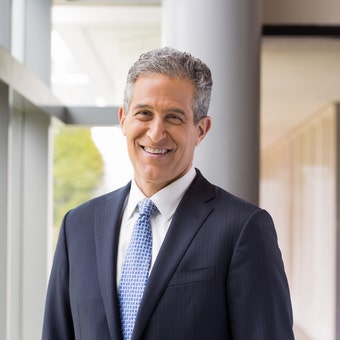Omicron variant causes fear as it continues to spread rapidly
Fox News correspondent Jonathan Serrie reports the latest on ‘Special Report’ as the virus spreads faster than previous variants.
When General George Washington wrote in 1777 that "necessity not only authorizes but seems to require the measure," he was referring not to military strategy but rather a health strategy: inoculating the entire Continental Army against a raging smallpox epidemic.
Such a mandate was unprecedented, but Washington determined that the benefits outweighed any risks: defeating the far superior British forces could only be achieved, he reasoned, if his troops were healthy.
FAUCI WARNS OMICRON SURGE ‘INEVITABLE’ AHEAD OF HOLIDAYS
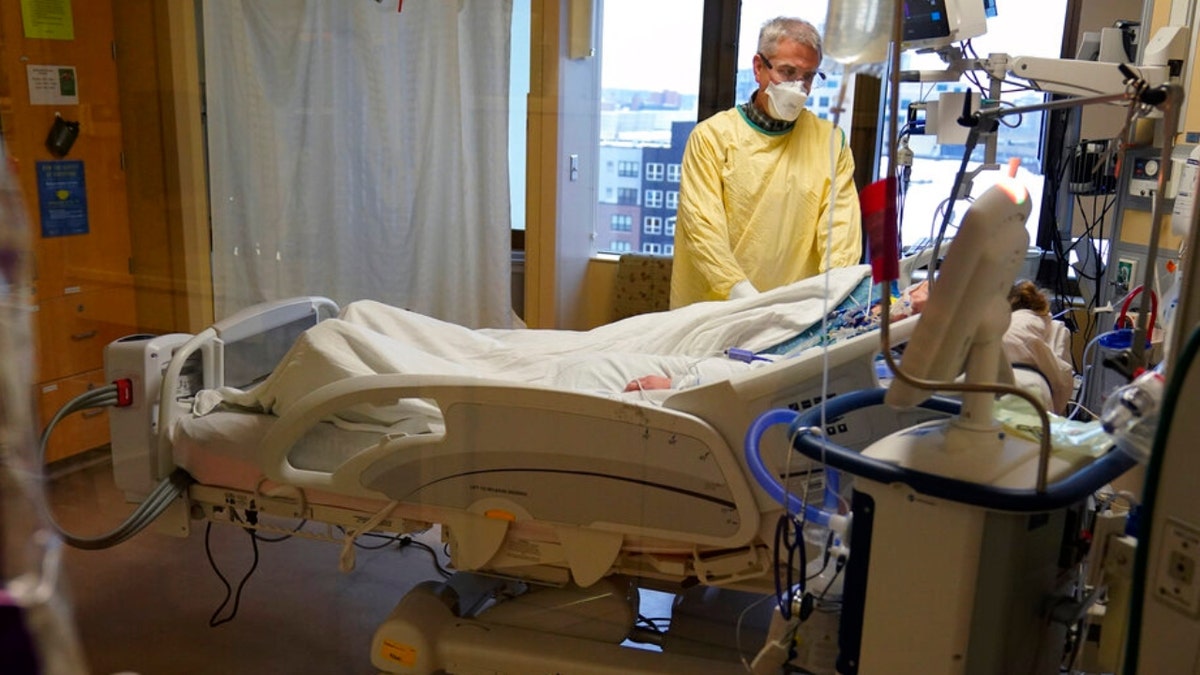
Steve Grove, a chaplain at Hennepin County Medical Center, prays in a COVID-19 patient’s room, Friday, Dec. 10, 2021, in Minneapolis. (AP Photo/Charlie Neibergall)
As we enter the third calendar year facing another virulent virus, and Omicron’s incredibly rapid spread quickly threatening to overwhelm our already beleaguered health care system, we would be wise to adopt Washington’s mindset. COVID-19 is still killing well over 1,000 Americans every day; we cannot accept this as a ‘new normal.’ Instead, we must summon the full weight of our scientific prowess and economic power to save lives, significantly reduce severe disease, and keep our families and communities as safe as possible.
We have come far since the pandemic’s early days. Thanks to Republican and Democrat administrations, more than 200 million Americans are fully vaccinated. We have distributed approximately 320 million vaccine doses globally. More than 99 percent of students in America are back in classrooms. The unemployment rate has fallen from 15 percent in April 2020 to 4.2 percent today. The U.S. poverty rate has declined following emergency economic relief.
But complacency is as much an enemy as the virus itself. Everyone in America should have what they need to stay safe and healthy—no matter who they are, where they live, or how much money they make.
Yet we are falling well short of that standard. More than 800,000 Americans have died from COVID-19, widening the existing life expectancy gap between the U.S. and other nations. Any declaration of victory now, particularly in light of Omicron, is wishful and dangerous thinking.
Finishing the job requires prioritizing these strategies:
Increase vaccination in the United States.
Individual choices go a long way towards protecting our families, communities, and country. COVID-19 vaccines lower the risk of severe disease and death significantly; as physicians, we endorse vaccination without hesitation, and strongly encourage all those eligible to get their booster shots. But our choices are often influenced and affected by the actions of public officials. Surveys show that false, anti-science propaganda about vaccines is especially prominent in areas with low vaccination rates.

A passer-by enters a pharmacy with a vaccination advisory attached to a door, right, Thursday, Dec. 2, 2021, in Worcester, Mass. As the U.S. recorded its first confirmed case of the omicron variant, doctors across the country are experiencing a more imminent crisis with a delta variant that is sending record numbers of people to the hospital in New England and the Midwest. (AP Photo/Steven Senne)
Public officials who peddle such myths and conspiracy theories take a rather dim and disrespectful view of their constituents. A case built on lies only demonstrates a fear of the truth. We are confident that more Americans will continue to see through and tune out these deceptions and instead decide to roll up their sleeves.
Increase vaccination worldwide.
The Delta variant was first identified in India, and Omicron in South Africa. Oceans cannot protect America from invisible threats. Nearly half the world—including nearly 90 percent of Africa’s population—remains unvaccinated, with the vast majority of shots administered in wealthy and upper-middle income countries.
The United States has the resources, moral authority and public support to increase its global vaccine contributions and galvanize other nations of means to do the same, but a chasm exists between what we have done and what we could do—the 320 million doses we have distributed globally to date is less than 30% of the 1.1 billion doses we’ve pledged. Every shot that goes into the arm of someone outside our borders not only saves lives abroad but also provides an additional layer of safety for all Americans.
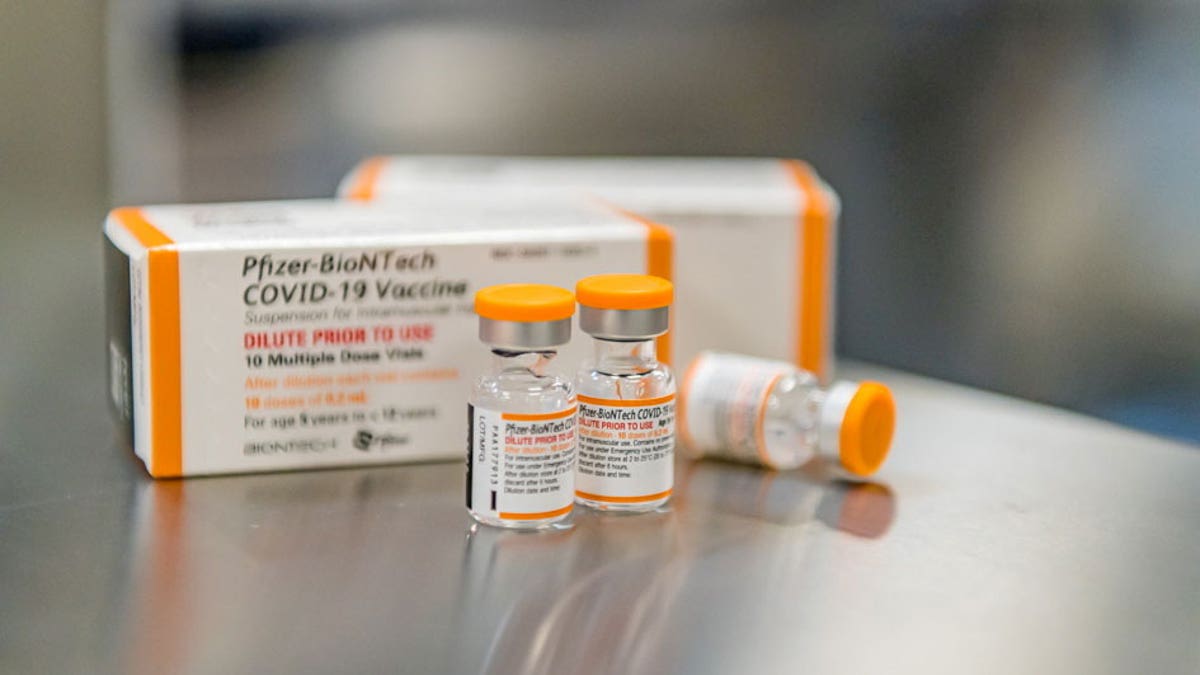
FILE PHOTO: Pfizer/BioNTech's new pediatric COVID-19 vaccine vials are seen in this undated handout photo. Pfizer/Handout via REUTERS ATTENTION EDITORS - THIS IMAGE HAS BEEN SUPPLIED BY A THIRD PARTY. MANDATORY CREDIT/File Photo (Pfizer/Handout via REUTERS ATTENTION EDITORS - THIS IMAGE HAS BEEN SUPPLIED BY A THIRD PARTY. MANDATORY CREDIT/File Photo)
Expand access to free, rapid testing.
COVID-19 tests, like COVID-19 vaccines, should be free, widespread, and plentiful. Omicron makes rapid testing an even higher priority, especially during the holiday season. But at-home tests are still far too expensive and/or inaccessible for many Americans.
The Biden administration’s plan to have health insurance companies reimburse the cost of COVID-19 tests forces the insured to pay initial costs upfront, adds unnecessary administrative burdens, and keeps the onus on the uninsured to track down limited numbers of free tests at a limited number of places.
Given that the unvaccinated face a significantly higher risk of getting and subsequently spreading COVID-19, ensuring regular testing for those individuals is especially important. We must make testing ubiquitous and err on the side of too many tests rather than too few.

Fully vaccinated individuals should seek guidance of a health care provider should they develop COVID-like symptoms, (iStock)
Strengthen economic assistance for families.
Even with a low unemployment rate overall, the U.S. remains down millions of jobs compared with pre-pandemic levels, and the continued economic fallout is hitting families with low wages especially hard. We should double down on what works. Advance payments of the expanded Child Tax Credit, for instance, have put more than $77 billion into the pockets of 61 million American families, lifting millions of children out of poverty and sharply reducing food insecurity.
But monthly payments ended on December 15 and to date have not been renewed by Congress. The expanded Child Tax Credit should be made permanent.
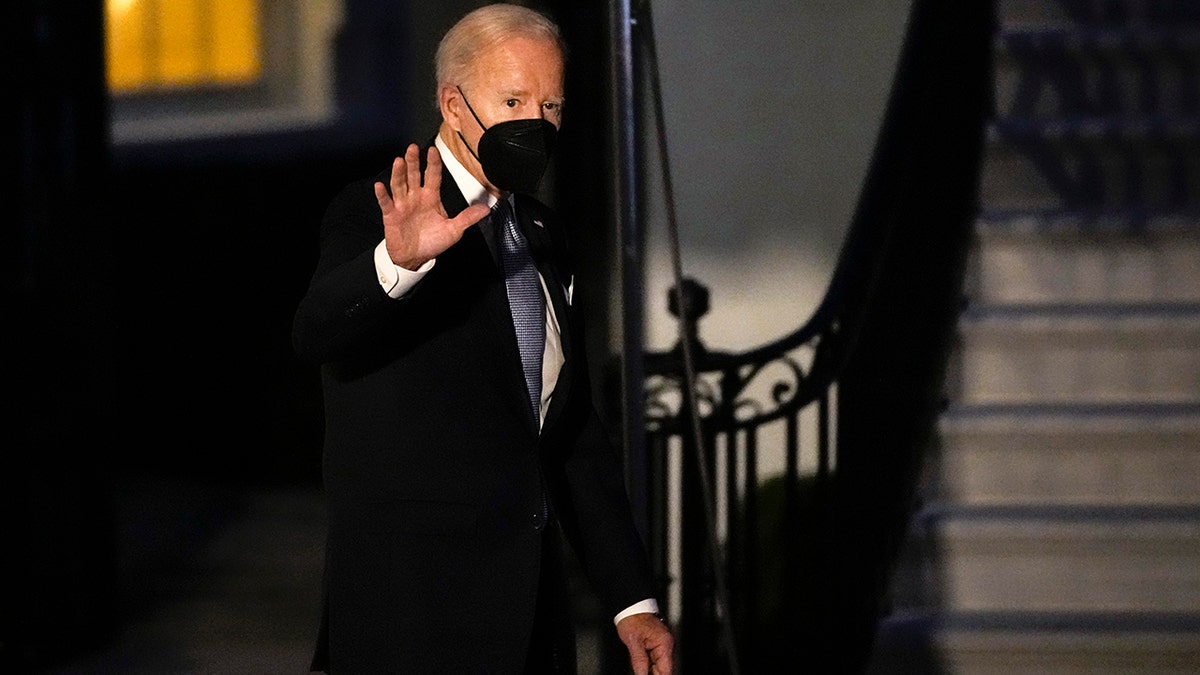
U.S. President Joe Biden walks to Marine One on the South Lawn of the White House December 17, 2021 in Washington, DC. Biden is traveling to Orangeburg, South Carolina to deliver a commencement address at South Carolina State University. ( Drew Angerer/Getty Images)
Remember the children.
As both pediatricians and parents, we are grateful that children are at lower risk of severe disease and that the number of children eligible for vaccines continues to expand. But the direct effects of COVID-19 on children have been significant—more than 7 million have been infected, thousands have developed a severe inflammatory condition as a result of infection, and several hundred have died.
Continuing to protect children—including universal masking in public indoor settings in areas of substantial or high transmission, as well as in schools and child care facilities—is the responsibility of every adult. We also must not forget the estimated 167,000 children who have lost a parent or caregiver to COVID-19. Communities have stepped up to provide support, but there is a shortage of professional mental health services at a time when the need continues to grow. This must be a national priority well beyond this pandemic.
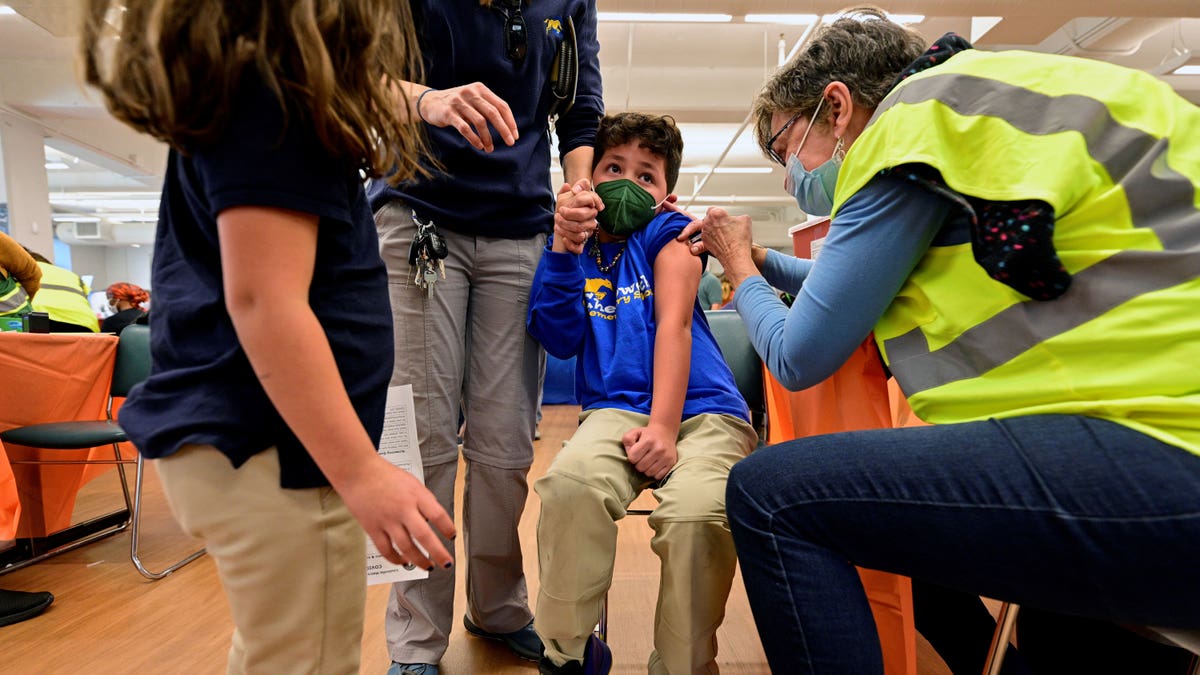
FILE PHOTO: A child reacts while receiving a dose of the Pfizer-BioNTech coronavirus disease (COVID-19) vaccine at Smoketown Family Wellness Center in Louisville, Kentucky, U.S., November 8, 2021. REUTERS/Jon Cherry/File Photo (REUTERS/Jon Cherry/File Photo)
Just as George Washington’s inoculation strategy did not prevent every soldier from contracting smallpox, these strategies will not completely eradicate COVID-19. Indeed, this virus will likely be with us in some form or fashion for a long time.
CLICK HERE TO SIGN UP FOR OUR OPINION NEWSLETTER
But Washington’s campaign did ensure that his regiments remained in fighting shape. Nearly 250 years later, times have changed.
CLICK HERE TO GET THE FOX NEWS APP
But the lesson remains the same: when you leave no stone unturned to protect people’s health, the battle can be won and victory can be achieved.
Julie Morita, a physician, is executive vice president of the Robert Wood Johnson Foundation and member of the CDC’s Advisory Committee to the Director; she served in a personal capacity on then President-elect Biden’s Covid-19 Advisory Board. Twitter: @DrJulieMorita.








































